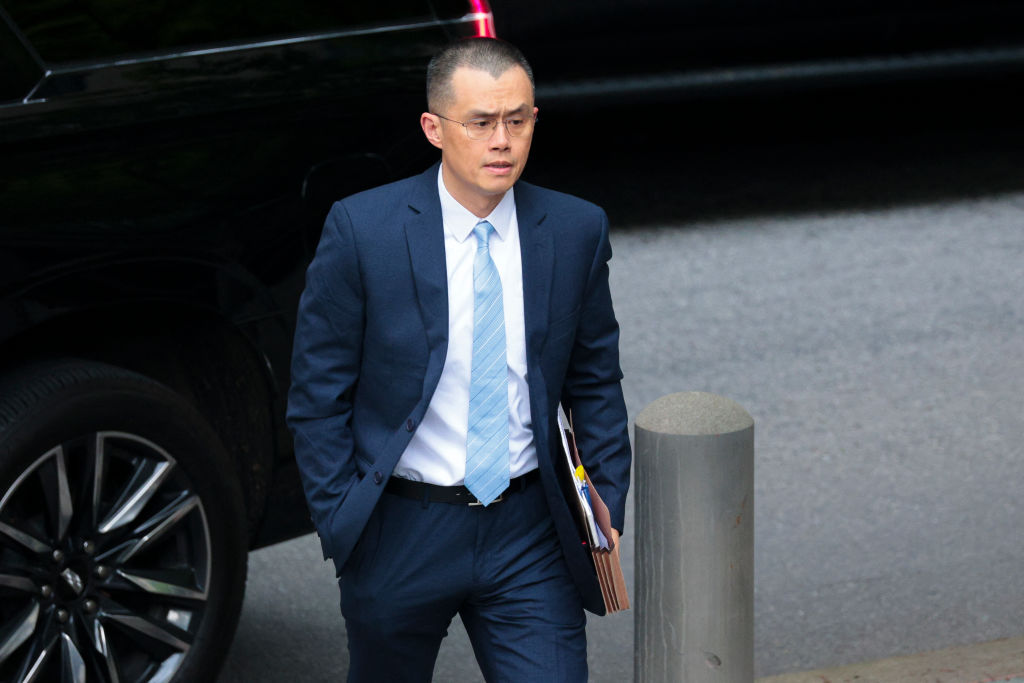“Better to ask forgiveness than permission.” Those were the words of Changpeng Zhao – the billionaire founder of Binance, the world’s largest crypto exchange – when dismissing the need for anti–money laundering safeguards. This week, his strategy proved both vatic and effective. Zhao, better known as “CZ,” received a presidential pardon for the money laundering charge to which he pleaded guilty in 2023.
Just a year ago, CZ was sentenced to four months in prison and Binance issued a colossal $4.3 billion fine after U.S. authorities found the exchange guilty of financial malpractice on a global scale. Yet its founder’s contrition was short-lived.
“No felon would mind a pardon,” Zhao wrote on X back in March, noting he was the only person in U.S. history jailed “for a single [Bank Secrecy Act] charge.”
His lawyer, former SEC attorney Teresa Goody Guillén, has since echoed the line, describing it as “a single charge of failure to have an effective compliance program. NO fraud, NO victims, NO criminal history. NO money laundering.”
That defence glosses over a staggering record of malpractice. Binance’s plea agreement with the DOJ states that between 2018 and 2022, the exchange enabled at least 1.1 million illegal transactions, worth nearly $900 million, between U.S. users and Iranian entities under sanctions.
Internally, Binance executives worked to obscure those violations. When high-value clients were flagged, they were told to create new accounts with non-U.S. identification. One senior compliance officer summed up the company’s attitude in an internal chat: “We need a banner – ‘Is washing drug money too hard these days? Come to Binance, we got cake for you.’”
Between 2017 and 2022, Binance handled $106 million in transfers from Hydra, the Russian dark-web marketplace used for drug trafficking and identity fraud. The exchange was also implicated in laundering funds for North Korea’s Lazarus Group, whose cyberattacks bankroll the regime’s nuclear programme. IRS investigators also found transactions linked to “Welcome to Video”, one of the most depraved child-abuse networks in history.
Given the scale and severity of the conduct at Binance under CZ’s watch, one glaring question emerges: why was the exchange’s criminal founder even considered for a pardon?
President Trump, when posed this exact question on Thursday, replied vaguely: “I don’t know, he was recommended by a lot of people… A lot of people say he wasn’t guilty of anything, and so I gave him a pardon at the request of a lot of very good people.”
That explanation satisfied few. Former Labour Secretary Robert Reich called it “the latest example of Trump’s Pay-to-Pardon scheme.” Even Trump allies were appalled: Palantir co-founder Joe Lonsdale said the decision “makes it look like massive fraud is happening around him in this area.”
The crypto lobby’s influence looms large in the background. During the 2024 elections, the industry’s Super PAC Fairshake amassed a warchest of hundreds of millions to back pro-crypto candidates. Their investment has paid handsome dividends: as well as issuing pardons to the founders of the BitMEX exchange, and the founder of the illicit marketplace Silk Road, the Trump administration has also fired SEC chair Gary Gensler and dropped a large number of prominent investigations into industry fraud.
As well as being major financial backers of political campaigns, crypto giants such as Ripple, Tether and Coinbase, and prominent industry leaders such as the Winklevoss twins, are also among the donors contributing to Trump’s new White House ballroom project.
Speculation has also been rife around whether Binance’s own business dealings may have influenced the decision to pardon Zhao. The firm is linked to World Liberty Financial: the crypto project launched by Trump and his sons, the latter currently running it alongside the son of Trump’s Middle East advisor, Zach Witkoff.
Earlier this year, the UAE – where CZ lives – announced it would be purchasing a stake in Binance worth $2 billion, with the funds being paid in World Liberty Financial’s $USD1 stablecoin. This figure accounts for the vast majority of all the $USD1 stablecoins in existence.
As the digital currency is backed by treasury bills, the project receives interest for as long as the tokens are held by Binance and not cashed in. Some estimates put the amount of interest the Trump family project will receive in the region of $60-80 million annually.
Given this web of financial entanglements, it is little wonder critics see CZ’s pardon as just the latest example of the commodification of justice under this administration. All eyes are now on who might be next in line to receive clemency, with the odds of Sam Bankman-Fried – the convicted FTX fraudster – skyrocketing.
And with get out of jail free cards now seemingly available to those with enough cash, the chances that criminals will feel more emboldened to act than ever before are rising too.
Did the billionaire Binance bro pay for his pardon?
Changpeng Zhao, who was sentenced to four months in prison, was granted clemency by Donald Trump

Former Binance CEO Changpeng Zhao arrives at federal court in Seattle, Washington, on April 30, 2024 (Getty)
“Better to ask forgiveness than permission.” Those were the words of Changpeng Zhao – the billionaire founder of Binance, the world’s largest crypto exchange – when dismissing the need for anti–money laundering safeguards. This week, his strategy proved both vatic and effective. Zhao, better known as “CZ,” received a presidential pardon for the money laundering charge to which he pleaded guilty in 2023.Just a year ago, CZ was sentenced to four months in prison and Binance issued a colossal $4.3 billion fine after U.S. authorities found the exchange guilty of financial malpractice on a global…























Leave a Reply